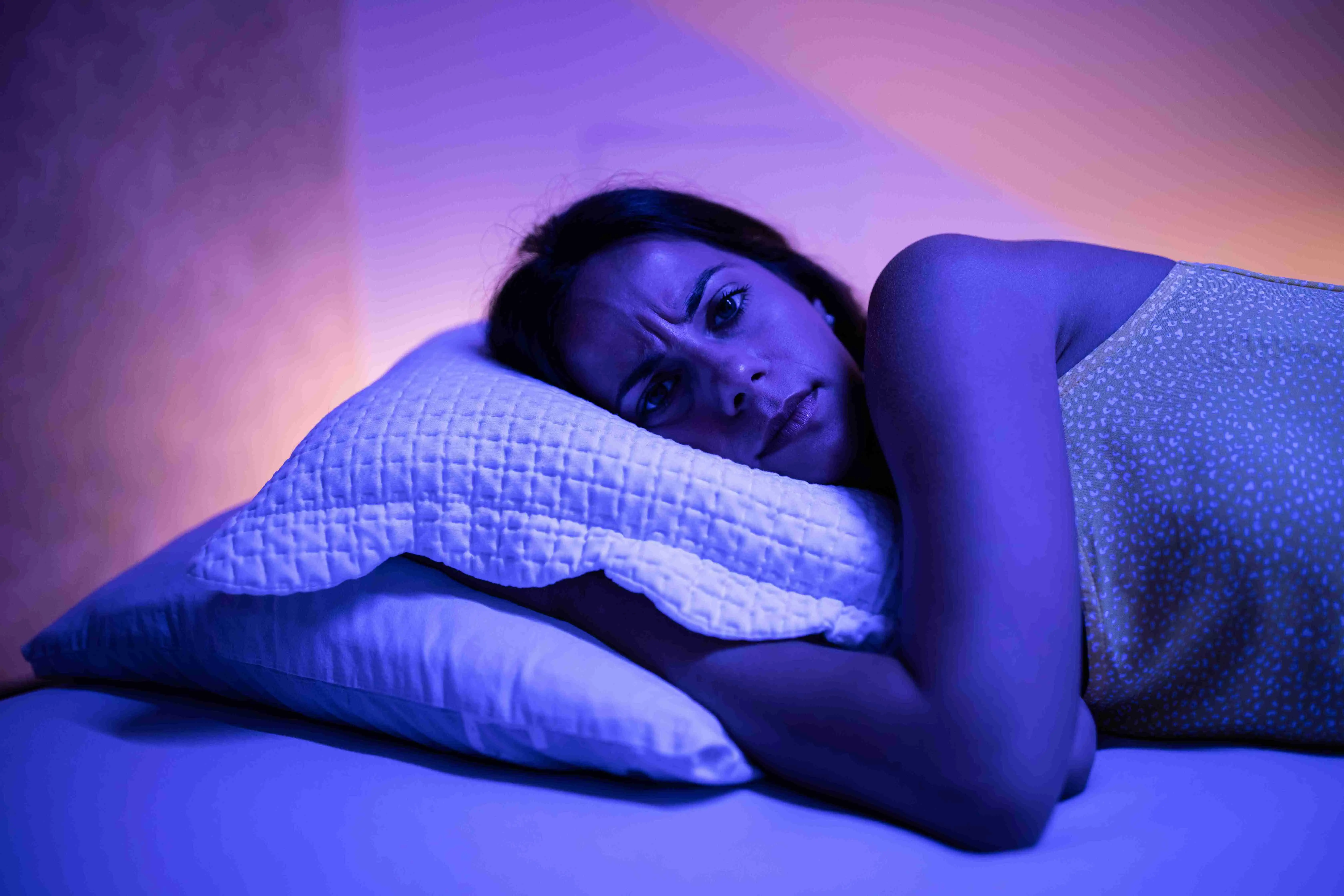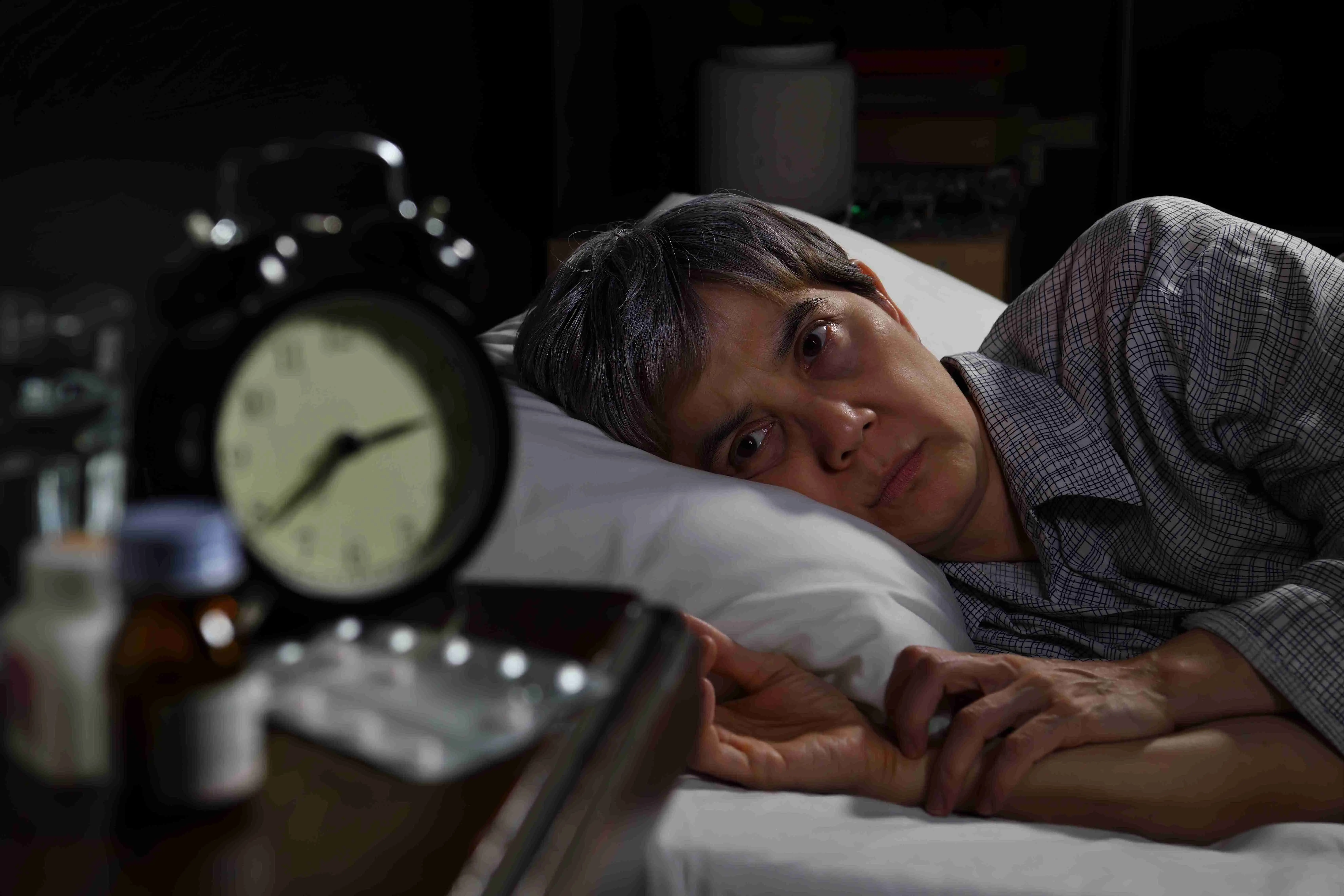Insomnia affects millions of people worldwide, making it difficult for them to fall asleep or stay asleep. Stress, lifestyle choices, and environmental factors are commonly linked to sleep disturbances, but genetics may play a more significant role than previously understood.
In this article, we will discuss the reasons, causes, and treatments for insomnia.
Understanding Insomnia
Insomnia, a sleep disorder characterized by persistent difficulty falling or staying asleep, can significantly impact your overall health and well-being.
It can manifest in various forms, including acute insomnia, which is short-term and often triggered by stress or environmental factors, and chronic insomnia, a prolonged pattern of disrupted sleep that persists for at least three nights per week for three months or more.
What causes insomnia?
Common causes and triggers of insomnia can range from medical conditions and psychological factors like anxiety or depression to lifestyle habits and environmental disturbances. While these external factors play a role, genetics may also contribute to the development and severity of insomnia.
Learn more about the Causes of Insomnia.
The Science Behind Genetics and Sleep

Numerous studies have explored the potential genetic underpinnings of insomnia, shedding light on this complex relationship.
- Twin Studies: Research involving identical and fraternal twins has provided compelling evidence for the heritability of insomnia. Identical twins, who share the same genetic makeup, are more likely to exhibit similar sleep patterns and insomnia symptoms compared to fraternal twins, suggesting a genetic component.
- Genome-Wide Association Studies (GWAS): These large-scale studies analyze genetic variations across the entire human genome to identify specific genetic markers associated with insomnia. Several GWAS have identified multiple gene variants linked to insomnia, including genes involved in neurotransmitter regulation, circadian rhythms, and stress response pathways.
- Candidate Gene Studies: Studies have shown the role of specific candidate genes known to be involved in sleep regulation, such as those related to melatonin production, adenosine metabolism, and neurotransmitter systems like serotonin and dopamine. Variations in these genes have been associated with an increased risk of insomnia or altered sleep patterns.
Environmental Factors vs. Genetic Predisposition
While genetics play a role in the development of insomnia, it's important to recognize that environmental and lifestyle factors also significantly contribute to sleep disorders. A balanced perspective is essential.
Lifestyle and Environment
- Stress: Chronic stress or acute stressful events can disrupt sleep patterns, leading to difficulty falling or staying asleep.
- Irregular Sleep Schedules: Shift work, travel, or inconsistent sleep habits can affect the body’s internal clock (circadian rhythm), making restful sleep harder to achieve.
- Caffeine Consumption: Stimulants like caffeine, especially when consumed later in the day, can interfere with the ability to fall asleep.
- Exposure to Blue Light: Prolonged use of electronic devices before bed emits blue light, which suppresses melatonin production, delaying sleep onset.
- Poor Sleep Hygiene: Inconsistent bedtime routines, uncomfortable sleep environments, or engaging in stimulating activities before bed can disrupt healthy sleep patterns.
Balancing Genetic and Non-genetic Factors
Understanding your genetic risk for insomnia can help you take proactive measures, such as adopting healthy sleep habits and addressing environmental triggers.
However, it's crucial not to overlook the impact of non-genetic factors, as these can often be modified or managed through lifestyle changes.
How Genes Influence Sleep Patterns

While genes set the stage for sleep behaviors, environmental factors like stress, diet, and exposure to light also interact with these genetic predispositions, making sleep a highly individualized experience.
Understanding the role of genetics helps scientists develop more personalized treatments for sleep disorders like insomnia, giving hope to those struggling with sleep problems.
Circadian Rhythm Genes
Specific genes that affect sleep-wake cycles are largely responsible for controlling circadian rhythm, the body's internal clock. Key genes like PER, CLOCK, and BMAL1 are responsible for maintaining the 24-hour rhythm of sleep and wakefulness.
Mutations or variations in these genes can lead to circadian rhythm disorders, such as delayed sleep phase disorder (DSPD), where individuals have difficulty falling asleep and waking up at conventional times.
Gene Mutations Linked to Sleep Issues
Several genetic mutations have been linked to sleep disorders. For example, mutations in the DEC2 gene have been found in individuals who require significantly less sleep than average, leading to the so-called "short sleeper" phenotype.
Additionally, mutations in the PRNP gene are associated with Fatal Familial Insomnia (FFI), a rare prion disease that leads to severe sleep disturbances and ultimately death.
Sleep Homeostasis
Sleep homeostasis refers to the body’s drive to maintain a balance between wakefulness and sleep. Genes that control the accumulation of sleep pressure or the need for sleep that increases the longer one is awake have an impact on this process.
Genes like adenosine receptors play a role in how sleep pressure is regulated. Variations in these genes can influence how quickly or slowly sleep pressure builds, affecting overall sleep duration and quality.
Epigenetics and Insomnia

Epigenetics refers to changes in gene expression that don't involve modifications to the DNA sequence itself but are a result of environmental or external factors. In insomnia, epigenetic changes can affect genes that regulate sleep, making individuals more or less susceptible to developing sleep disorders.
Environmental factors such as chronic stress, poor diet, and disrupted sleep patterns can lead to epigenetic modifications, like DNA methylation or histone modification, impacting genes involved in sleep regulation. For instance, prolonged exposure to stress hormones can alter the expression of genes related to the body's circadian rhythms and stress response, increasing the likelihood of insomnia.
Treatment Options for Genetic Insomnia

While there is no one-size-fits-all solution for genetic insomnia, various treatment approaches can help manage symptoms and improve sleep quality:
Medication and Therapy
- Prescription sleep medications: Prescription sleep medications, also known as hypnotics, are often prescribed to help individuals with insomnia. These medications can include benzodiazepines (e.g., lorazepam, diazepam) and non-benzodiazepine sleep aids (e.g., zolpidem, eszopiclone).
- Melatonin Supplements: Melatonin is a hormone naturally produced by the body that regulates the sleep-wake cycle. Melatonin supplements can help individuals with insomnia, particularly those experiencing circadian rhythm disruptions, such as shift workers or those suffering from jet lag.
- Cognitive Behavioral Therapy for Insomnia (CBT-I): Cognitive Behavioral Therapy for Insomnia (CBT-I) is a highly effective, non-pharmacological treatment for chronic insomnia. This therapy involves identifying and changing thoughts and behaviors that contribute to sleep problems.
- Prion-targeted Treatments: For rare cases of insomnia related to prion diseases, such as Fatal Familial Insomnia (FFI), treatment options are limited and primarily supportive.
Lifestyle Changes and Sleep Hygiene
If you have a family history of insomnia or are concerned about your genetic risk, taking proactive steps, such as enhancing your sleep hygiene, can help prevent or mitigate the development of sleep disorders.
- Establishing a Regular Sleep Schedule: Going to bed and waking up at the same time every day helps regulate your internal clock, making it easier to fall asleep and wake up naturally.
- Creating a Restful Sleep Environment: A comfortable, quiet, and dark space enhances sleep quality. You can also consider removing distractions like screens or using white noise machines.
- Reducing Aaffeine and Alcohol Intake: Both caffeine and alcohol can interfere with your ability to fall asleep or stay asleep, so cutting back, especially in the evening, is crucial.
- Incorporating Relaxation Techniques: Practices like deep breathing, progressive muscle relaxation, or mindfulness before bed can reduce stress, allowing for a smoother transition to sleep.
- Regular Physical Activity: Moderate exercise, particularly earlier in the day, can help you fall asleep faster and improve sleep quality.
FAQs
Can insomnia be inherited?
While insomnia is not directly inherited, there is a genetic component that can predispose individuals to developing sleep disorders like insomnia. If you have a family history of insomnia, you may be at a higher risk of experiencing similar sleep difficulties.
Are there specific genes associated with insomnia?
Yes, several gene variants have been identified as potential contributors to insomnia. These include genes involved in regulating circadian rhythms, neurotransmitter systems, stress response pathways, and sleep-wake cycles. However, the genetic basis of insomnia is complex, and multiple genes are likely involved.
Can lifestyle factors override genetic predisposition to insomnia?
While genetics play a role, lifestyle and environmental factors can significantly influence the development and severity of insomnia. Adopting healthy sleep habits, managing stress, and addressing environmental triggers can help mitigate the impact of genetic predisposition and improve sleep quality.
How do genetics influence sleep patterns?
A complex interplay of genetic and environmental factors affects your sleep patterns, including the timing, duration, and quality of sleep. Certain genes are responsible for regulating the body's internal clock, known as the circadian rhythm, as well as the production of hormones and neurotransmitters that govern sleep-wake cycles.
What is the role of DNA in sleep disorders?
DNA, the fundamental blueprint of life, carries instructions that determine various aspects of our physiology, including sleep-related processes. Variations or mutations in specific genes can predispose individuals to sleep disorders like insomnia, narcolepsy, or sleep apnea, by altering the production or function of proteins involved in sleep regulation.
Conclusion
Although genetics can play a role in insomnia, it's important to keep in mind that lifestyle choices and environmental factors still have a big impact on sleep. Even for those with a genetic predisposition, good sleep hygiene and targeted treatments can help manage symptoms.
Jessica H.
Jessica is a reviewer, writer, and sleep enthusiast at Sleepiverse. Jessica graduated with her master's degree in Nursing research and education. She is a registered nurse and currently works in the Intensive Care Unit. Since becoming a nurse, Jessica has worked the night shift, which means a disrupted sleep schedule. Knowing she needed to function at her best while caring for patients at night, she spent a lot of time researching how to sleep well with a difficult schedule.


